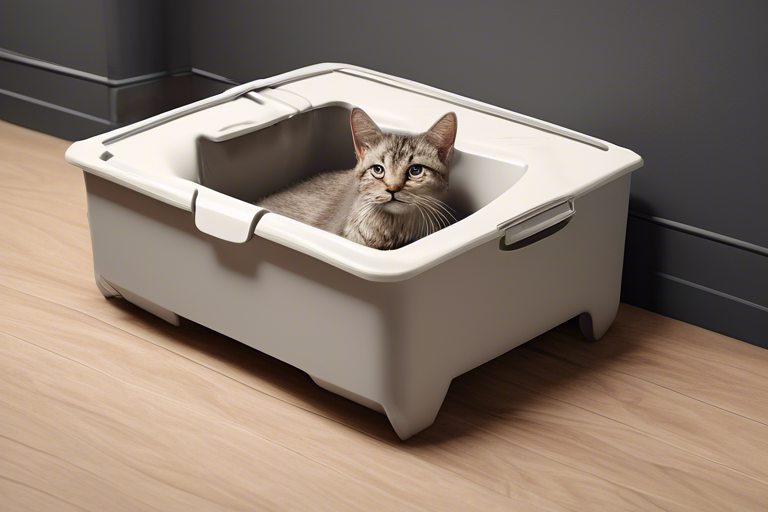Introduction
Have you ever come across the claim that inhaling cat urine can produce a hallucinogenic effect? This myth has been circulating online, but what’s the truth behind it? In this article, we’ll delve into the science behind cat urine and its potential effects on humans. We’ll explore the components of cat urine, debunk the myths surrounding its mind-altering properties, discuss the potential health risks associated with cat urine exposure, and provide tips for handling cat urine safely. So, let’s separate fact from fiction and discover the truth about cat urine.
Understanding Cat Urine
Cat urine is a fascinating liquid waste product that serves various important purposes in a cat’s life. It acts as a form of communication, marking territory and conveying vital information to other cats. When a cat urinates, it leaves behind a distinct scent that contains chemical signals, helping cats establish ownership and boundaries. The chemical composition of cat urine is complex, consisting of water, waste products, and various compounds.
The primary components of cat urine are urea, ammonia, and pheromones. Urea, a byproduct of protein metabolism, gives cat urine its distinctive odor. Ammonia is produced when urea breaks down and can be irritating when inhaled in large quantities. Pheromones in cat urine play a role in communication between cats, marking territory, and signaling reproductive status.
Debunking the Myth
Despite the circulating myth that cat urine can induce mind-altering effects, there is no scientific evidence to support this claim. Cat urine does not contain psychoactive substances that can alter one’s mental state. Inhaling cat urine is not a safe or recommended way to achieve a “high” feeling. While ammonia fumes from cat urine can irritate the respiratory system and potentially cause lightheadedness, the concentration of ammonia in cat urine is relatively small compared to other sources.
The idea that cat urine can produce a “high” feeling may stem from the placebo effect or sensationalized stories. The placebo effect can lead individuals to perceive certain sensations based on their expectations. However, the placebo effect is not a reliable or consistent way of producing a “high” feeling. Ingesting or inhaling substances known to produce intoxication, such as alcohol or drugs, is illegal and poses significant health risks.
Health Risks Associated with Cat Urine Exposure
While cat urine may not have mind-altering effects, exposure to it can still be hazardous to your health. Inhaling ammonia fumes from cat urine can cause respiratory issues such as coughing, wheezing, and shortness of breath. People with pre-existing respiratory conditions like asthma or COPD are especially vulnerable. Allergic reactions to cat urine proteins can also occur, leading to itching, hives, and difficulty breathing.
Cat urine can contain harmful bacteria and viruses, posing the risk of infections and diseases. Toxoplasmosis, caused by a parasite found in cat urine, can lead to flu-like symptoms and, in severe cases, blindness or brain damage. Pregnant women are particularly at risk. Leptospirosis, caused by a bacteria found in cat urine, can cause fever, headache, muscle pain, and vomiting. Proper handling and disposal of cat urine are essential to prevent the spread of harmful bacteria and viruses.
Handling Cat Urine Safely
To minimize health risks associated with cat urine exposure, it’s crucial to handle it with caution and practice good hygiene. Here are some important measures to consider:
Handwashing
After handling cat urine or cleaning litter boxes, it’s essential to wash your hands thoroughly with soap and warm water. This helps remove any bacteria that may be present on the skin and reduces the likelihood of infection.
Protective Measures
Consider wearing disposable gloves when cleaning litter boxes or handling cat urine. Gloves provide a barrier between your skin and the urine, minimizing the risk of bacterial contamination.
Cleaning and Disinfection
Regularly clean and disinfect litter boxes, surfaces, and areas that come into contact with cat urine. Use appropriate cleaning products effective against bacteria to ensure proper sanitation.
Proper Wound Care
If you have any open wounds or cuts, keep them clean and covered with a sterile dressing. Avoid direct contact between the wound and cat urine to prevent bacterial entry.
By practicing these hygiene measures, you can significantly reduce potential health risks associated with handling cat urine. However, it’s important to note that the majority of individuals who handle cat urine or clean litter boxes do not experience any health issues. Taking precautions is always a wise approach to safeguard your well-being.

Litter Box Hygiene and Health
Maintaining a clean litter box is crucial for the well-being of your cat and your own health. Cats are naturally clean animals and prefer a litter box that is free of waste and odors. By prioritizing litter box hygiene, you provide a comfortable and healthy environment for your cat while minimizing potential health hazards.
Regularly scooping the litter is an essential aspect of litter box hygiene. Promptly removing solid waste from the litter box keeps it fresh and inviting for your cat. It also helps prevent the buildup of bacteria that can thrive in soiled litter, reducing the risk of potential infections.
In addition to scooping the litter, replacing the litter when necessary is important. Over time, the litter can become saturated with urine, leading to unpleasant odors and an unsanitary environment. Refreshing the litter regularly ensures a clean and comfortable space for your cat.
Maintaining litter box hygiene benefits not only your cat but also your own health. A clean litter box minimizes the presence of harmful bacteria that can pose health risks to both you and your cat. It promotes good litter habits in your cat, reduces the likelihood of litter box aversion or inappropriate elimination issues, and keeps your home free of unpleasant odors.
Conclusion
The myth that cat urine can induce mind-altering effects lacks scientific evidence. Cat urine contains compounds that serve important biological functions but does not possess psychoactive properties. Inhaling cat urine can be harmful and is not a safe or recommended way to achieve a “high” feeling.
Exposure to cat urine can pose health risks, including respiratory issues, allergic reactions, and the potential for infections and diseases. Proper handling and hygiene practices are essential to minimize these risks. By maintaining litter box hygiene, you create a clean and healthy environment for your cat and reduce the likelihood of health hazards.
When it comes to your health and safety, rely on reputable sources of information and consult healthcare professionals or veterinarians if you have any concerns. By promoting accurate knowledge and debunking myths, we can ensure that our understanding of cat urine is based on factual information.






